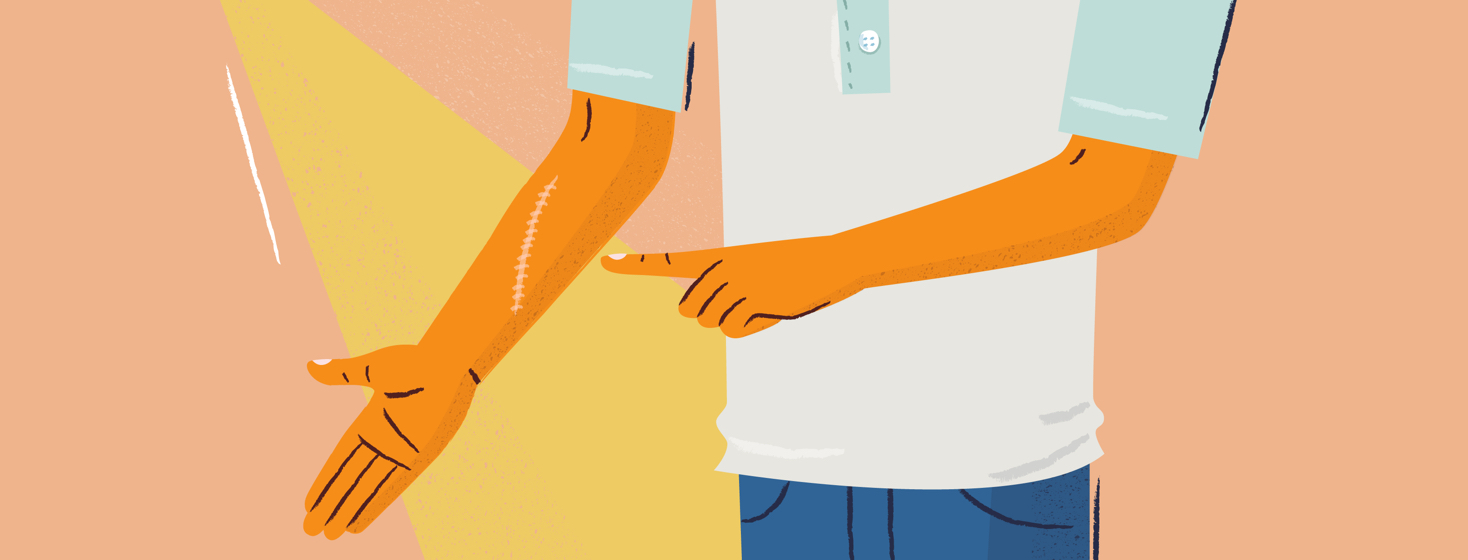If Scars Could Speak
I remember looking down at my left forearm for the first time after my surgery in 1988. The surgical stitches were very obtrusive as they wrapped around half of the width of my arm. The whole mess looked like train tracks weaving their way across my skin.
It was not a pretty sight and nothing that I had anticipated. I thought to myself, "This is going to leave a mark." It did, a forever mark. It left some emotional scars as well. I didn't think that a 24 year old boy/man was supposed to have scars from skin cancer.
Always the funny man
In those early years my scar was very noticeable. I had some decisions to make. Do I hide it? Do I celebrate it? Do I make humor of it? It never occurred to me to make use of it? My most common response to those sensitive souls who questioned me about it was something to the effect of, "You should see what happened to the other guy?" This was my attempt at levity as if I had been attacked by some knife-wielding crazed person and all I got was this massive scar and I had exacted enough revenge to send them to the hospital. Hopefully, this attempt at deflection ended the questioning and conversation.
Run and hide
After that phase of denial, I entered a new phase that involved hiding my scar. I would wear long sleeves at all costs. This may have been a blessing in disguise knowing what I know now about the sun's damaging rays, but at the time it was just another attempt to run and hide. I was not comfortable sharing what I viewed as my weakness and my affliction. Who wants to be at their ten-year high school reunion talking about melanoma?
Changing perspective
Eventually, I landed in a good place for me. I began to see my scar as an opportunity. I began to see it as a way to share my story. I began to see it as a point of redemption rather than shame. Like that cool Asian vase in your home, my scar became a conversation piece that went with me wherever I went. It became a cool thing and I didn't have to make up any stories about heroic acts of bravery on my part versus my perpetrator.
The scar tells my story
Now, my scar has faded a bit, thankfully. But, in another sense, I don't mind its prominence at all. Since I have become a shameless evangelist for skin care, my scar has become my Bible of sorts. When I am asked about it, I am able to naturally transition the conversation into topics like diagnosis, self-examination, regular doctor visits, prevention and sun safety, and hope. I have turned that scar on its ear, if it had an ear.
Can your scar tell yours?
My scar has a story, a story that can help others. Maybe you have a scar. Maybe you feel or have felt what I have felt. Could it be that your scar will be a catalyst to help others? Maybe so. The most important thing that my scar has done for me is help me with the emotional scars that I have felt since my diagnosis and surgery. My platform has helped me heal on the inside as my scar has healed on the outside.

Join the conversation